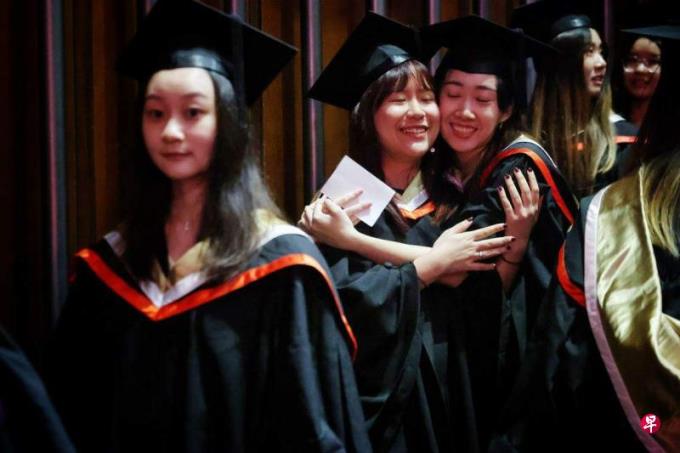
Are we learning not to get up and improve personal cultivation?But now, young people are not interested in their mother tongue learning, and the decline in language levels seems to reflect the most simple and fundamental desire to improve their studies. This situation is worrying.
The Straits Times published an article "Becoming Proficient in English Has Cost for Many Singaporeans" at the end of last year to explore the advantages and disadvantages of Singapore's bilingual policy and disadvantages.The author agrees that Singapore implemented a bilingual education system that year -changed the teaching media language to English, and stipulated that students to go to the mother tongue class -indeed bring a lot of benefits.However, its cost is to indirectly make young people tend to use English, which accidentally leads to the dilute of local culture.The most obvious is the loss of dialects.Of course, this phenomenon cannot be completely blamed on bilingual policies. After all, countries around the world go globalization, which will inevitably dilute local characteristics.
There is a point at a price.At present, the level of mother tongue of many young people is only enough to cope with simple and informal communication. It is difficult to express more complex views, let alone in -depth discussions on a subject.After all, we mainly communicate in English in daily life.
This reminds me of the songs that local singers Benjamin Kheng and Internet celebrities cooperated a few years ago.The lyrics tell that when the Singaporeans buy economic vegetables, they often call the name of the dishes. I refer to painting and feet, and I can only say "this dish, that meat" for a long time.In addition to humor, the phenomenon of the local Chinese is gradually sparse, which makes me feel pity and sighing.
Language is an important link to connect traditional cultural values. Vocabulary is naturally an important element to carry cultural connotation.The phrase of the language can reflect the traditional values and world outlook of the group.For example, everyone knows that the classification of the relationship between English and Chinese is very different. The simple word "Uncle" can be translated as uncle, uncle, uncle, uncle, uncle, etc.In the final analysis, the traditional Chinese society pays attention to respecting the elderly, and the title of relatives must be clear.As a result, the young Chinese are getting unfamiliar with Chinese vocabulary, does it mean that the values containing it also fade?
It is undeniable that the bilingual education system has practical value.The author has a student exchange plan in China and is exposed to classmates from all over the world.As a "proficient" Singaporean, I have become a communication bridge between different national students, as translators.Although the translation ability is limited, whenever foreign friends have a thumbs up, they marvel at "Singaporeans are really powerful, English Chinese will speak!" I can't help but be complacent, and I sincerely grateful to Singapore's bilingual education system.
Although this is the case, I also know a lot of real "multi -language masters" during studying abroad.Many international students from Africa, Europe and other regions can not only speak fluent Chinese, proficient in English, and even speak Spanish, French, Russian and so on.They are not Chinese. They have only learned Chinese in just a few years, and they can chat and talk in Chinese in Chinese, so that the Chinese who have been studying at a special school since childhood respectfully respect.
In addition to the traditional dilute, the decline in the level of mother tongue in Chinese people also reflects more worrying social phenomena.Since the Singapore People's Action Party has taken politics in 1959, it has emphasized the importance of bilingual education for the composition of population, geopolitics, and economic advantages.The rapid development of decades also proves the pragmatic benefits of policies, and thus consolidating the status and value of English in the minds of the people.
Today, the employment market basically only requires job seekers to be proficient in English, and only a few majors require a certain level of mother tongue.It is worthwhile that this kind of employment needs awareness affects the child's learning mentality, prompting them to regard the mother tongue that seems to be "no value and meaning" as a secondary subject, and transfer limited energy and time to someEnglish.Inadvertently studying, of course, the level of mother tongue will only decline. The so -called bilingual tends to "monosnial" -the English, the mother tongue seems to slowly disappear the post -dialect from the latter dialect.
In the final analysis, even if the bilingual education system is necessary and wise in Singapore's environment that year, it accidentally reduces the level of mother tongue of Chinese people and dilutes local culture.This may be because students feel that even if they work hard to take a good mother tongue, they may not help improve employment opportunities. It is better to spend more economic and economic English.Similar to the "inner rolls" in Chinese society, students blindly pursue their grades, just to "win the starting point" when applying for a job in the future.Zi said: "Do you learn to learn it when you learn it?" Do we learn not to get up and improve personal cultivation?But now, young people are not interested in their mother tongue learning, and the decline in language levels seems to reflect the most simple and fundamental desire to improve their studies. This situation is worrying.



